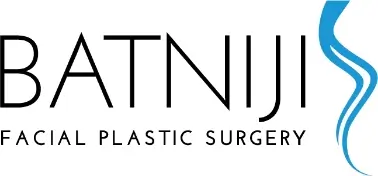Undergoing facial plastic surgery is a momentous occasion in any patient’s life. As humans, we are seemingly programmed to continually strive for greater things, be it higher education, a promotion at work, or any other way to improve our own lives. Altering the look of the face may be necessary for the improvement of a person’s health or self-esteem, and certainly offers personal gratification along with functional and aesthetic benefits.
Know Your Aesthetic Preferences
While potential candidates of facial cosmetic treatments or procedures may dislike certain aspects or features of the face, each should try to recognize what it is they would like to change. Rather than simplifying plastic surgery and knowing rhinoplasty could be beneficial but without a specific concept in mind, a person may not yet be ready for plastic surgery if they cannot articulate changes they would like to see.
If a person if thinking about setting up a consultation with a doctor, it is recommended that he or she view the face from multiple angles. The area of the face can be viewed as a whole so a person can zero in on what it is that bothers them. Even during a reconstructive surgery, such as a skin cancer procedure or facial hemangioma removal, the doctor is typically able to also satisfy facial improvement concerns.
Be Clear During Your Consultation
Once a person develops specific preferences or has at least an idea of how they would like to alter his or her looks, they are ready to schedule a consultation. This office visit serves as the initial meeting between doctor and patient, and a platform to discuss the patient’s concerns. Prior to this appointment, people should enter this visit with answers to the following questions:
- What bothers you about your face?
- Are you undergoing this procedure because of health or aesthetic concerns?
- What are your physical goals?
- Do you have any existing health problems that we may need to work around?
- Have you ever had plastic surgery before?
During this time, the doctor may be able to deem the patient healthy or fit for a non-surgical procedure or surgery, and formulate a treatment plan. However, it may be necessary for the patient to undergo blood work, facial scans, or other procedures to ensure a safe treatment. After all, an elective surgery is just that and must be secondary to a person’s health.
Be Open-Minded to the Doctor’s Expertise
While each patient may have a preconceived notion of how they could benefit from physical improvements, the doctor can create changes a number of ways. An aging patient may feel that they would benefit from a full facelift, when in fact the doctor could create the most natural changes through dual procedures, such as midface lift and facial resurfacing. In other cases, facial fillers may serve as a viable option to the restoration of facial volume whereas facial implants were first thought of as the only solution.
Not only are facial plastic surgeons expertly trained in the anatomy of the face, but they are also privy to innovative procedures and new, state-of-the-art equipment. There are ongoing studies of various methods and materials used in aesthetic treatments, and as knowledge in these areas evolve, so do treatment plans. The doctor may be able to provide patients with written materials on options they would like to know more about.
Be Honest and Upfront
If you have reservations about the the procedure(s) suggested for correction, let the doctor know. Plastic surgeons have the difficult calling of balancing patients’ aesthetic preferences with their own artistic integrity. Plastic surgery is thought of as the balanced combination of beauty and science, but good looks are subjective. Though plastic surgeons are taught to view facial harmony from an anatomical perspective, patients are mostly concerned with the final look of the feature and face. Together, even if a patient attends more than one consultation, doctors and patients can form a great partnership that leads to optimal patient fulfillment.
Though facial plastic surgery is a part of the healthcare field, the patient can also think of him- or herself as a customer to a business. It is the doctor’s ultimate goal to ensure both safety and satisfaction. The customer pays for a particular service that the doctor provides. There must be open communication so each party benefits from the transaction.
Rami K. Batniji, M.D, F.A.C.S. Facial Plastic Surgeon
Patients travel from near and far to visit Dr. Batniji to undergo aesthetic improvements. The doctor now provides patient care at two separate locations – Newport Beach, California and Beverly Hills, California. The Southern California locations should not fool those interested in cosmetic changes, as the doctor is known for his transformative, yet natural results. The specialty surgeon performs procedures of the face and neck, with a number of unique offerings, such as earlobe repair, hemangioma removal, and lip reshaping along with other more traditional facial plastics. The doctor’s non-surgical procedures are done through gold-standard techniques, complemented by the many cosmeceutical skin care lines the office offers.
Schedule a consultation with Dr. Batniji in Newport Beach by calling (949) 650-8882, or his Beverly Hills location at (310) 467-2180. Interested potential patients are also invited to complete the doctor’s Patient Contact Form, which allows individuals to attach photos to their messages. This can be especially helpful for out-of-town guests and people with busy daytime schedules.

